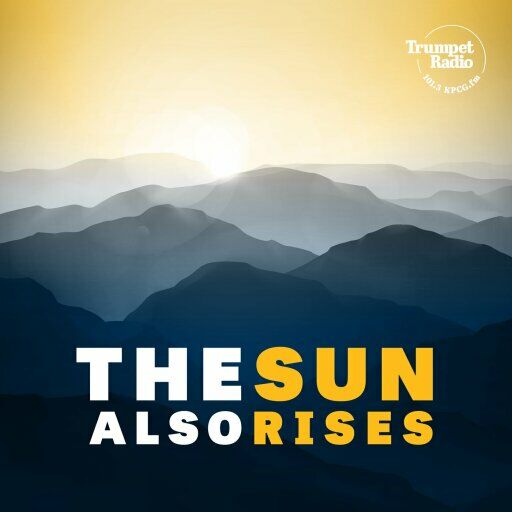
The Sun Also Rises
The news keeps getting darker. The world seems to keep getting bleaker. But Solomon wrote, “the sun also ariseth.” The Sun Also Rises transmits the true, the bright and the beautiful, glints of light in a world going black. Each week, host Jeremiah Jacques brings you stories of refreshing accomplishment, intriguing science and inspiring lives—glimmers of hope that hint at a better world to come.
The Bible Scoops Science?
In the mid 1800s, a major medical breakthrough happened that has saved countless lives since then. But could it be that this life-saving knowledge was actually available to mankind for millennia before that breakthrough?
The Girl Scouts vs. Imperial Japan—The Unsung WWII Battle
In today’s episode, Mary Previte discusses a forgotten World War Two battle: The Girl Scouts vs. Imperial Japan. Mrs. Previte took part in the fight. Her story is astounding.
Running the Good Run
When it comes to intellect and creative power, there’s no question that humans vastly outperform every other creature on earth. But did you know there is also a basic physical ability in which people can outperform the animals? Today’s episode takes a look at the marathon as a metaphor for life, and examines some life lessons we can learn from endurance running.
Why Creators Should Crave Criticism
It’s not enjoyable for us to be told that our creative work has problems, or that it is of inferior quality. We like to hear positive feedback, and generally recoil from such criticism. In this episode, host Jeremiah Jacques tells the story of an artist who was bombarded by critical feedback. The artist’s reaction to it contains a lesson for us all.
Regrow, Recover, Rehabilitate
In our era, it’s usually the innovators who receive the bulk of reward and recognition. But what about those who restore, regrow, recover and rehabilitate? This episode turns the spotlight on individuals who have achieved remarkable accomplishments, not so much with new innovations, but by fixing something that went wrong.
Four Small Words
On today’s episode, we dig deeply into a four-word sentence.
Humor Is Truth
What is humor? Why is it? Where does it come from? What happens in its absence? In this episode, host Jeremiah Jacques addresses these questions, and also attempts to demonstrate humor in a way that makes the listeners laugh. Also discussed is the vital role that humor played in the life of a history-altering man.
The Black Man Dismantling the KKK with Friendship—One Robe at a Time
Racism often becomes a self-exacerbating force. If a person feels hated by a certain group, his normal reaction is to hate that group right back: Meet hatred with hatred. It’s the natural, usual reaction. But today’s episode examines a man who does not behave in the natural, usual way. This man doesn’t meet hatred with hatred, but with authenticity, humility, patience, friendship and hope for his fellow man. This man’s unusual approach has achieved some extraordinary results that we can all learn from.
Upcycling Swords into Plowshares
Outside the UN headquarters in New York City, stands a bronze sculpture of a man holding a hammer high in one hand, using it to beat a huge broadsword into the shape of a farming tool. The inscription reads: “We Shall Beat Swords Into Plowshares.” The UN says the sculpture symbolizes “man’s desire to put an end to war and convert the means of destruction into creative tools for the benefit of all mankind.” Today’s episode shows some examples from around the world of people converting weapons into life-enriching tools.
Grit: How and Why to Get it in Your Life
Grit is more important to success than intelligence or talent. This episode discusses the new book “Grit: The Power of Passion and Perseverance” to show how you can develop grit in your life. It features an interview with the gritty new World Scrabble Champion, the story of how a young Benjamin Franklin went from a below average writer to a world-class one, and much more.